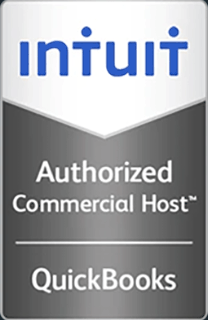Did Your IT Solutions Help or Hinder Your Firm this Tax Season?
Another hectic tax season is in the books. After you and your staff take a well-deserved break, you’d be well advised to reflect on what went well and what could have gone better so you can plan and implement improvements for next year. Whether you were hampered by understaffing, miscommunication, or IT issues, it’s critical to identify and overcome any obstacles that stand in the way of operational efficiency and exceptional client service.
When it comes to IT, there are several things to think about. Were your critical business applications always available? Were you able to share files with clients and colleagues effortlessly and securely? Were you and your employees able to work remotely without any productivity glitches? If you answered “no” to any of these questions, then it’s time to rethink your IT strategy and make some changes before the next tax season rolls around.
Cloud Application Hosting for the Win
Whether you rely on QuickBooks, Thomson Reuters, Drake, CCH, or another accounting application, you can’t afford your systems to go down during tax season. The same goes for office applications like email and collaboration software. All we need to do is look back to 2019 when Wolter Kluwer and Cetrom suffered extended downtime due to security events1 to understand the importance of application availability.
If you’re hosting these applications in house, aging or poorly maintained hardware, inconsistent software updates and patches, or security breaches could all lead to downtime — bringing productivity to a near standstill during your busiest season.
Hosting your critical applications in the cloud can help ensure availability, but all cloud providers are not created equal. Look for a cloud hosting provider with a proven track record for uptime — or better yet, a 100% uptime guarantee. Ask about their cloud infrastructure and its built-in components — from power redundancy to fault-tolerance to encrypted backups — for always-on availability. It’s always smart to check the providers’ client references to verify their uptime and performance claims.
Remote Work is the New Normal
It’s no secret that tax season means long hours for small and mid-sized accounting firms. The ability to work from home productively helps ease some of the stress, allowing you and your staff to see your families more and enjoy some home-cooked meals. But, too often, working remotely is fraught with IT headaches — from access and connectivity issues to an inferior user experience. When these barriers to productivity arise, the advantages of remote work quickly dissipate.
That’s why you need a cloud hosting solution that’s tailored to the way your business — and your employees — work. You should be able to enjoy the same user experience you get in the office from any device and any location. All your applications should have the same familiar look and feel and be available on one screen — without forcing you to log in and out of separate servers.
Support for anywhere, anytime collaboration is important as well. Remote printing and file sharing will allow you to work more effectively with both clients and colleagues as you gather tax documentation, communicate with clients, resolve issues, and prepare forms.
Security Matters More than Ever
If you’re still hosting your applications in house, keep in mind that it’s difficult for most small and midsize firms to afford the level of security and monitoring built into enterprise-level cloud hosting platforms. What’s more, as the cyber threat landscape continues to evolve and attacks grow more sophisticated, even cloud platforms are not completely bullet-proof. In fact, 2021 was a tough year for AWS-related data breaches, with security incidents bringing down networks and causing widespread business disruption.2
When you partner with a cloud IT provider, make sure that their security is top tier. Ask about network and infrastructure security, identity and access control, data protection and encryption, and application security to make sure you’re protecting sensitive client information as well as your own applications and data. As importantly, find out what policies and procedures they have in place to get you back online, restore data, and ensure business continuity if a security incident does occur.
The Waiting is the Hardest Part
Who do you call when you have IT issues — especially during the tax season crunch? If you have in-house IT infrastructure, are you pulling a tech-savvy accountant away from their regular job to troubleshoot problems? Or are you using an outside IT consultant who is juggling many other clients and may not get back to you right away? This can really slow you down — when you can least afford it — frustrating both employees and clients alike.
If you use a cloud provider or multiple IT vendors, are they all there to support you when you need them? Do you wait hours or even days to get a response? Consider consolidating IT with one provider for optimal value and service. By leveraging one reliable provider for cloud application hosting, managed services, and managed IT, you have one number to call and one bill to pay. The provider will be familiar with your cloud configuration and applications, so they can identify and resolve your issues quickly. Plus, if you opt for unlimited help desk support, your end users can get their questions answered 24/7 to maximize productivity and morale.
If IT was a stumbling block for your firm this tax season, Infinitely Virtual (IV) is ready to help. Consolidated IT solutions from IV provide a single, enterprise-level platform for secure, reliable cloud application hosting, managed services, and remote work enablement — all backed by unlimited IT support and proven domain expertise.
- 1Courtney L. Vien, What To Do Before the Cloud Goes Down, Journal of Accountancy (August 30, 2019), found at https://www.journalofaccountancy.com/news/2019/aug/when-cloud-software-goes-down-201921423.html.
- 2Eric Kedrosky, Worst AWS Data Breaches of 2021, Security Boulevard, (December 29, 2021), found at https://securityboulevard.com/2021/12/worst-aws-data-breaches-of-2021/.





